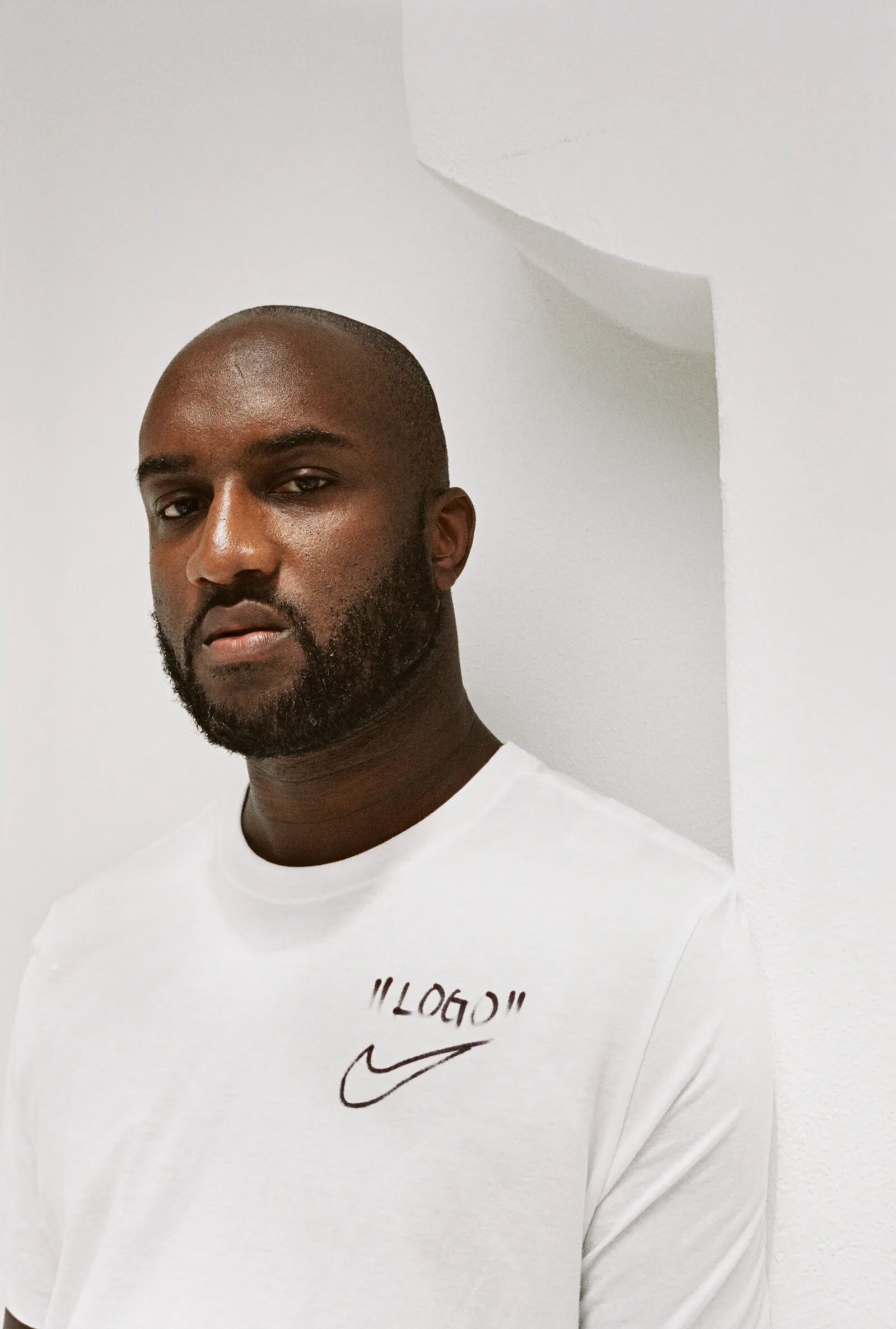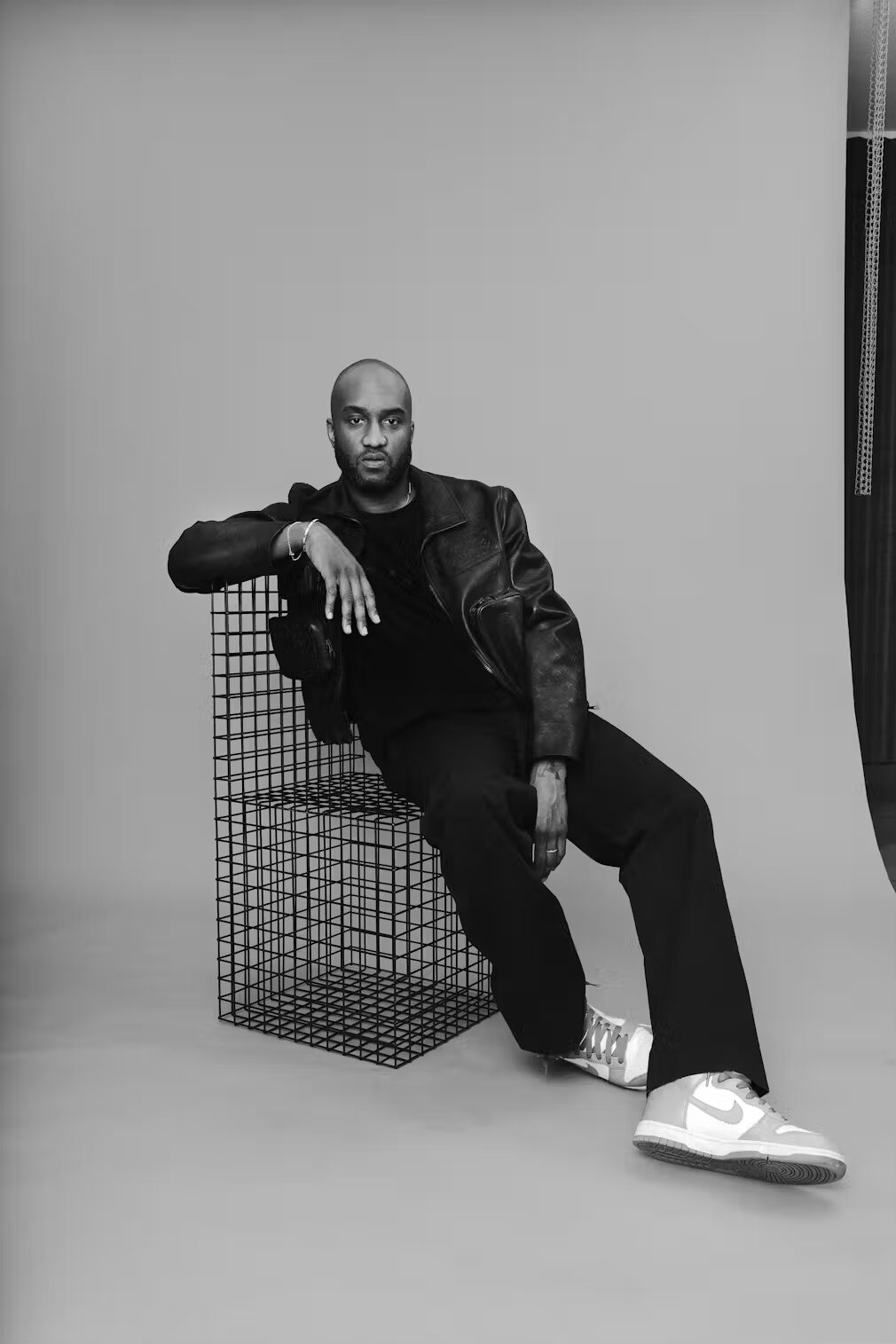Virgil Abloh, the first African American to lead a luxury fashion house, revolutionized fashion by blending luxury with streetwear. Discover his journey and legacy.
Virgil Abloh: the black icon of luxury and streetwear who shaped fashion

On November 28, 2021, the fashion world lost an innovator, a creator, a dreamer: Virgil Abloh. Two years after his passing, the impact of his work continues to resonate far beyond runways and prestigious collaborations. Abloh, the son of Ghanaian immigrants, was a trailblazer. By transcending the boundaries between streetwear and luxury, he turned ideas into cultural movements. This tribute celebrates the man and his legacy, affirming that his vision remains a universal source of inspiration.
Born in 1980 in Rockford, Illinois, Abloh wasn’t destined to become the fashion icon we know today. His first love was architecture, a field he studied at the University of Wisconsin-Madison before earning a master’s degree at the Illinois Institute of Technology. But even then, Virgil Abloh was looking beyond the lines and angles of buildings. To him, fashion, art, and music were different languages of the same discourse: the expression of identity.
This multidimensional understanding propelled Abloh to the crossroads of cultures. During an internship at Fendi, he met Kanye West, a meeting that changed his life’s trajectory. Together, they dreamed of redefining creativity. Abloh became the artistic director of Donda, West’s creative agency, before launching his own projects, including Pyrex Vision, an early fashion endeavor that, despite its short run, paved the way for strategic collaborations.
In 2013, Abloh founded Off-White, a brand envisioned as a liminal space between black and white, streetwear and luxury. Far from merely producing clothing, Abloh infused each creation with cultural reflection, blending industrial design elements, architectural symbols, and artistic references. Quotation marks, red zips, and minimalist messages became his signature—not just a logo, but a manifesto.
What truly set Off-White apart, however, was Abloh’s ability to use collaborations as catalysts. His collection with Nike, titled The Ten, redefined sneaker design, turning classic models into works of art. The scarcity of these shoes sparked global frenzy, cementing Off-White as a cornerstone of contemporary fashion.
When Abloh was named artistic director of menswear at Louis Vuitton in 2018, he made history. He became the first African American to hold such a position at a French luxury house. This appointment was a political statement in itself, but Abloh went further: he redefined the brand’s codes by incorporating elements of urban culture.
His first collection for Louis Vuitton, unveiled in the gardens of the Palais Royal, was a historic moment. Rihanna, wearing a look designed by Abloh, lit up the guest rows, while artists like Kid Cudi and Dev Hynes walked the runway. With this collection, Abloh sent a clear message: luxury should not be an exclusive club; it can and must embrace diversity.
Abloh was more than a clothing designer. He was also a DJ, artist, and philanthropist. His collaborations with IKEA, Mercedes-Benz, Baccarat, and Evian showcased his desire to transcend the boundaries of design. His exhibition Figures of Speech, presented at prestigious institutions like the Museum of Contemporary Art in Chicago, explored his creative universe, blending fashion, art, and activism.
As a prolific DJ, he played at the world’s trendiest clubs, bringing his creative energy to every set. Through his philanthropic efforts, such as the creation of the Virgil Abloh “Post-Modern” Scholarship Fund, he worked to open doors in the fashion industry for a new generation of Black creators.
Abloh’s death from a rare cancer left an immense void. Yet his legacy continues to inspire. The collections he designed for Louis Vuitton remain touchstones, and Off-White retains its iconic status. But beyond clothing, it is his approach, audacity, and vision that endure.
By reimagining fashion as a space where art, culture, and identity converge, Abloh opened new perspectives. He proved that being an outsider can be a strength and that the dreams of an immigrant’s child can redefine an entire industry.
In an era where cultural and creative boundaries blur, Abloh reminds us that art, in all its forms, is a universal language. He remains an emblematic figure, a beacon for those aspiring to push boundaries, create meaning, and build a world where every voice can be heard.
On November 28, 2024, as we commemorate two years since his passing, we do not merely mourn the loss of an exceptional creator. We celebrate the life of a man who, through his work, planted seeds of change in hearts and minds.
Virgil Abloh: the eternity of a revolutionary spirit

Virgil Abloh is no longer with us, but his dream lives on.
